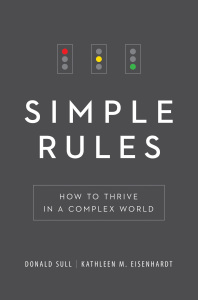“I really enjoy working with students and sharing fundamental ideas with them. It’s as simple as that,” says Professor Kathleen Eisenhardt, one of the most cited scholars in the domain of strategy and organization studies in the last quarter century. “I don’t think about my students as the ‘next generation of influencers’ or ‘captains of industry’ — although they are likely to become just that.”
Rather, Eisenhardt explains, “I see them as young adults — and I get satisfaction out of watching them maturing, blossoming and succeeding in whatever becomes their passion and path.”
Case in point: Adam Khorakiwala, a public policy major in Stanford’s class of 2015, says he plans to take what he’s learned in Eisenhardt’s course on organizational theory and management and eventually apply it toward international development efforts in his home nations of India and the Philippines.
Selamile Dlamini, a native of Swaziland, also expects to apply the insights about effective leadership from Eisenhardt’s course toward a career in the public sector to address pressing issues in Africa. However, Dlamini is testing them already at Stanford, where she heads the International Undergraduate Community.
“I think about how to be more of an effective and impactful leader and how to design subgroups and how to communicate with people effectively,” said Dlamini, a management science and engineering major, also in Stanford’s class of 2015. “It’s something that you really use in real time.”
Now, Eisenhardt is taking her insights beyond Stanford and sharing them with anyone seeking common-sense solutions to complicated lives. Simple Rules: How to Thrive in a Complex World, which comes out April 21, distills decades of research on how individuals and organizations succeed in high-velocity and complex markets into an incredibly accessible 288 pages for the average reader.

The applications of simple rules, which she writes about with co-author Donald Sull of MIT, range from coping with insomnia and scaling ventures like Airbnb to gardening, playing poker and setting Federal Reserve interest rates.
“I wanted to write the kind of book that I particularly enjoy reading,” Eisenhardt says. “I love books about fundamental ideas like those by, for example, Malcolm Gladwell and Michael Pollan.”
Her previous book, Competing on the Edge: Strategy as Structured Chaos, focuses on businesses in the volatile and highly competitive markets that characterize technology-based industries. Along with her co-author then, MS&E Ph.D. and former Google senior vice president Shona Brown, they concluded that entrepreneurs and other executives must cast aside standard survival strategies and instead constantly reinvent themselves.
This insight gets to the heart of Eisenhardt’s scholarly focus. Working in research and consulting with executives in firms ranging from telecommunications and software, to Internet and biotech, agribusiness and solar power, she emphasizes novel theories of complexity and the realities of power that move beyond traditional approaches that assume equilibrium and favor planning.
Formative Years and Honors
Eisenhardt recalls that she first wanted to become a professor when she was a sophomore in college, studying engineering. She was drawn to the idea of a career that would let her explore novel ideas and be her own boss. Her research focus came later, while working in the software industry right after college.
“I realized that the technical problems that I faced were ‘easy,’ but the organizational issues were not,” remembers Eisenhardt, who then went on to earn a Ph.D. in organizational behavior at the Stanford’s Graduate School of Business. Even before she finished her doctoral dissertation in 1982, she had launched her faculty career and began teaching across campus at the School of Engineering.
And that’s where she’s been ever since, teaching thousands of undergraduates and master’s students over the years, authoring more than 100 papers and book chapters, penning three books and advising about two dozen Ph.D. students who have gone on to become industry leaders and faculty members at some of the most prestigious universities in the world.

Most recently, the Academy of Management’s Technology and Innovation Management division named Eisenhardt its 2014 Distinguished Scholar at the academy’s annual meeting last August. Colleagues in attendance described Eisenhardt as a pioneer in building theories from case-studies research, and credited her with developing a “world-famous” method of comparative case studies that “uniquely has performance as the dependent variable.”
This adds to previous awards that include four honorary degrees, the Global Award for Entrepreneurship Research, and selection as a fellow of the World Economic Forum, Strategic Management Society and Clinton Global Initiative.
Knowledge Organizations Need
Eisenhardt readily acknowledges that definitive research results can be elusive in her chosen field. But even if the insights take time to develop, her contributions to better understanding the importance of heuristics and other cognitive approaches, along with the strategies of entrepreneurs, have been significant.
And other findings about effective competitive strategies — such as following market bottlenecks instead of leveraging in-house capabilities – have been “personal revelations,” Eisenhardt notes.
“My work often translates well into popular articles such as for Harvard Business Review” and Sloan Management Review,” she observes. “I also find that my work appeals particularly to senior corporate executives, who tend to think in broad and fundamental ways, which is a superb fit for my approach to academic research.”
And besides holding the Stanford W. Ascherman M.D. Professorship and serving as Chair of the Ph.D. program in MS&E, Eisenhardt is also a co-director of the Stanford Technology Ventures Program, the entrepreneurship center in the School of Engineering.
“Kathy is a model modern scholar. She is very focused on doing great research that is rigorous, relevant and offers new twists,” says fellow MS&E Professor Bob Sutton, also a prolific author in organizational theory. “This is why Stanford students love her classes, and why so many senior executives have used her ideas to make better decisions and to build great companies.”

